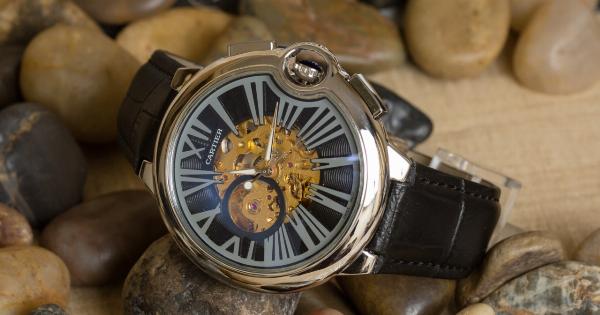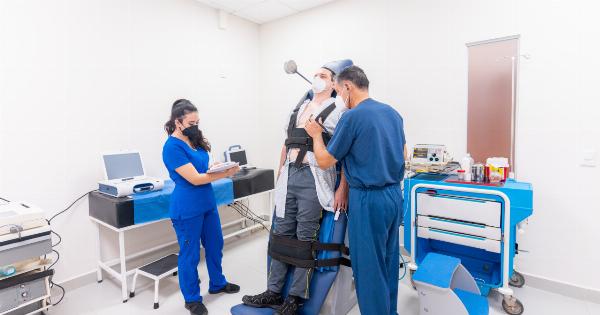When it comes to the health of your child, every parent wants the best possible solutions. This is especially true when it comes to dealing with serious conditions like heart valve defects.
Thankfully, modern medical advancements have paved the way for innovative solutions that can adapt to the growing needs of your child. In this article, we will explore a heart valve solution that can provide long-term effectiveness and flexibility for children.
Understanding Heart Valve Defects
Heart valve defects are congenital conditions that affect the proper functioning of the valves in the heart. These valves play a crucial role in ensuring proper blood flow by opening and closing at the right time.
When there is a defect present, the valves may not close properly, leading to blood leakage or obstruction of blood flow.
Children with heart valve defects often experience symptoms such as shortness of breath, fatigue, chest pain, and poor growth. If left untreated, these defects can have serious consequences on the overall health and development of the child.
Traditional Treatment Options
Traditionally, heart valve defects in children have been treated with open-heart surgery. During this procedure, the defective valve is either repaired or replaced with a mechanical or biological valve.
While effective, these surgical treatments often require multiple surgeries as the child grows and the valve needs to be replaced to accommodate their changing anatomy.
Multiple surgeries can be emotionally and physically taxing for both the child and their parents. Additionally, each surgery carries its own risks and complications.
Therefore, finding a heart valve solution that minimizes the need for repeated surgeries is incredibly important.
The Melody Valve: A Flexible Solution
The Melody valve is a revolutionary solution that offers a minimally invasive alternative to traditional open-heart surgeries.
It is specifically designed for children with congenital heart valve defects, providing long-term effectiveness and adaptability.
How Does the Melody Valve Work?
The Melody valve is a bioprosthetic valve that can be implanted within a previously placed conduit in the heart. It is inserted using a catheter-based procedure, eliminating the need for open-heart surgery.
This significantly reduces the risks associated with traditional surgeries and ensures a quicker recovery time.
Once the Melody valve is placed, it begins functioning just like a natural heart valve. It allows blood to flow through the heart and prevents any backward leakage. The Melody valve is unique because it can be expanded as the child grows.
This eliminates the need for repeated surgeries and ensures that the valve can adapt to the changing anatomy of the child.
Benefits of the Melody Valve
The Melody valve offers several key benefits for children with heart valve defects:.
1. Minimally Invasive Procedure:
The catheter-based procedure used to implant the Melody valve requires only a small incision, reducing the risks associated with open-heart surgery.
2. Shorter Recovery Time:
Since the procedure is minimally invasive, the recovery time is significantly shorter compared to traditional open-heart surgeries. This allows children to resume their normal activities sooner.
3. Long-Term Effectiveness:
The Melody valve is designed to last for many years, ensuring long-term effectiveness in managing heart valve defects.
4. Adaptability:
One of the most significant advantages of the Melody valve is its adaptability. It can be expanded as the child grows, eliminating the need for repeated surgeries to replace the valve and accommodating the child’s changing anatomy.
5. Improved Quality of Life:
By minimizing the need for repeated surgeries and offering an effective, long-term solution, the Melody valve greatly improves the quality of life for children with heart valve defects.
Potential Risks and Considerations
Like any medical procedure, the Melody valve implantation does carry some risks. These risks may include infection, bleeding, or valve dysfunction.
However, the overall risks associated with the Melody valve procedure are significantly lower compared to open-heart surgeries.
It is important for parents to consult with their pediatric cardiologists and discuss the specific risks and benefits of the Melody valve for their child’s condition.
The Future of Pediatric Cardiology
The introduction of the Melody valve highlights the advancements in pediatric cardiology and the focus on finding innovative solutions for children.
It has transformed the way heart valve defects are managed, providing a flexible and effective treatment option.
As technology continues to evolve, we can expect further advancements in the field of pediatric cardiology.
Researchers and medical professionals are constantly working towards developing even more sophisticated solutions that will cater to the unique needs of each child.
Conclusion
Heart valve defects in children require specialized and effective treatment options. The Melody valve has revolutionized the way these conditions are managed, offering a flexible and long-term solution.
By minimizing the need for repeated surgeries and providing adaptability as the child grows, the Melody valve improves the overall quality of life for children with heart valve defects. It is essential for parents to work closely with their pediatric cardiologists to determine the best course of treatment for their child’s specific condition.




























